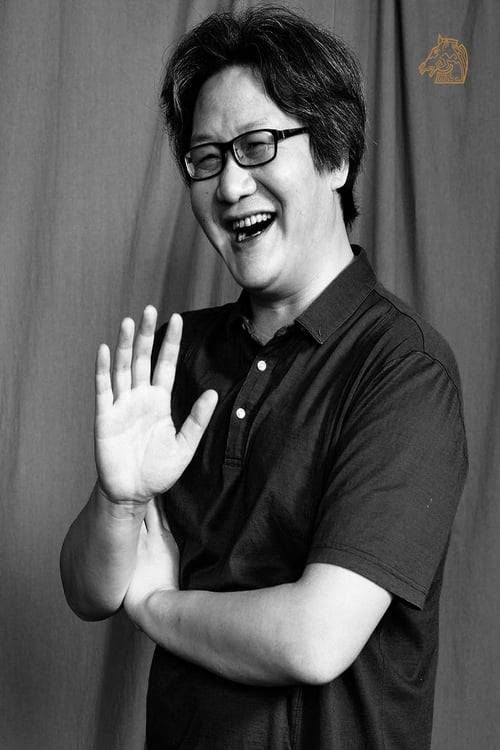
Xu Haofeng
Рождение : , Beijing - China
История
Xu Haofeng was born in Beijing and began to learn Xingyiquan, one of the major “internal” styles of Chinese martial arts, in 1987. After studying fine arts for five years, he went to the Department of Film Directing in Beijing Film Academy and graduated in 1997. Unlike his peers who were eager to make waves in the newly discovered film market, Xu returned home and studied Taoism and the history of martial arts from two eighty-year-old masters for eight years. In 2006, his publication "Shiqu de wulin" (In Search of the Lost Martial Arts World) aroused nationwide attention. He continued to write novels and non-fiction about the ecology of the martial arts sphere in the Republic of China. In 2011, his first film "The Sword Identity" had its world premiere at the 68th Venice Film Festival and this marked the reincarnation of the Chinese martial arts film. One year later, his sophomore film "Judge Archer" premiered at the 7th Rome Film Festival. Xu insists in presenting unusual values in traditional Chinese culture in an age celebrating outrageous slapstick comedies and restless performing monkeys, and he investigates whether people could live in an alternative way, other than following the conventional circle of life.

Screenplay
Set in 1920s Tianjin, northern China, and centres on the rivalry between the son of a martial arts master and his most talented apprentice. When the old master dies, the two face off to take over his prominent martial arts academy. But rather than obey the rule of settling disputes behind closed doors, they take their fight to the street.

Director
Set in 1920s Tianjin, northern China, and centres on the rivalry between the son of a martial arts master and his most talented apprentice. When the old master dies, the two face off to take over his prominent martial arts academy. But rather than obey the rule of settling disputes behind closed doors, they take their fight to the street.
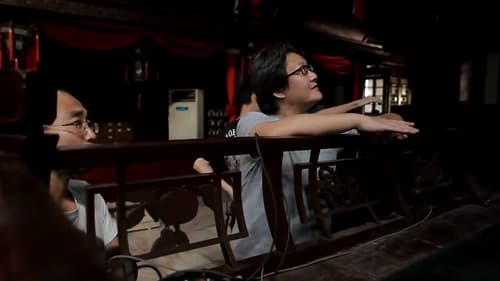
自己

Editor
The widow of a famed general teams up with an impostor posing as her late husband and schemes to steal the secrets of an elderly master swordsman. Their plans are complicated by the master's grandson, who is himself torn between his filial duty and the affections of his adopted sister.

Novel
The widow of a famed general teams up with an impostor posing as her late husband and schemes to steal the secrets of an elderly master swordsman. Their plans are complicated by the master's grandson, who is himself torn between his filial duty and the affections of his adopted sister.

Screenplay
The widow of a famed general teams up with an impostor posing as her late husband and schemes to steal the secrets of an elderly master swordsman. Their plans are complicated by the master's grandson, who is himself torn between his filial duty and the affections of his adopted sister.

Director
The widow of a famed general teams up with an impostor posing as her late husband and schemes to steal the secrets of an elderly master swordsman. Their plans are complicated by the master's grandson, who is himself torn between his filial duty and the affections of his adopted sister.
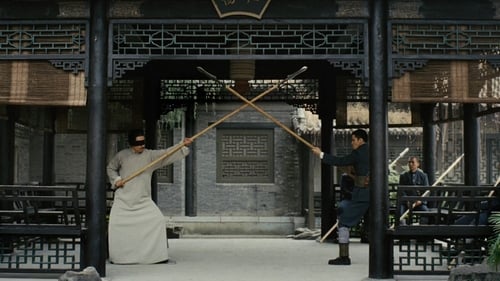
Writer
The spear signifies political power, the arrow personal ambition. What happens when the two collide?

Director
The spear signifies political power, the arrow personal ambition. What happens when the two collide?
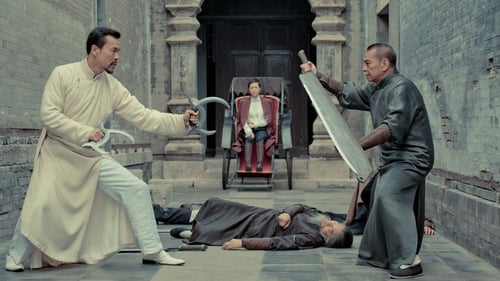
Editor
Желая открыть свою школу винчуня, Чэнь Ши приезжает в Тяньцзинь — город, известный своими боевыми искусствами. Несмотря на то, что Чэнь Ши довольно скоро покоряет своим мастерством лидера местных учителей, правила Тяньцзиня для всех одинаковы: открыть своё заведение может лишь тот, кто победит представителей всех восьми школ. Причём, сделать это необходимо руками своего ученика. Процесс небыстрый, но делать нечего — Чэнь Ши назначает себе в ученики грузчика с талантом к боевым искусствам и приступает к тренировкам.

Director
Желая открыть свою школу винчуня, Чэнь Ши приезжает в Тяньцзинь — город, известный своими боевыми искусствами. Несмотря на то, что Чэнь Ши довольно скоро покоряет своим мастерством лидера местных учителей, правила Тяньцзиня для всех одинаковы: открыть своё заведение может лишь тот, кто победит представителей всех восьми школ. Причём, сделать это необходимо руками своего ученика. Процесс небыстрый, но делать нечего — Чэнь Ши назначает себе в ученики грузчика с талантом к боевым искусствам и приступает к тренировкам.

Writer
Желая открыть свою школу винчуня, Чэнь Ши приезжает в Тяньцзинь — город, известный своими боевыми искусствами. Несмотря на то, что Чэнь Ши довольно скоро покоряет своим мастерством лидера местных учителей, правила Тяньцзиня для всех одинаковы: открыть своё заведение может лишь тот, кто победит представителей всех восьми школ. Причём, сделать это необходимо руками своего ученика. Процесс небыстрый, но делать нечего — Чэнь Ши назначает себе в ученики грузчика с талантом к боевым искусствам и приступает к тренировкам.
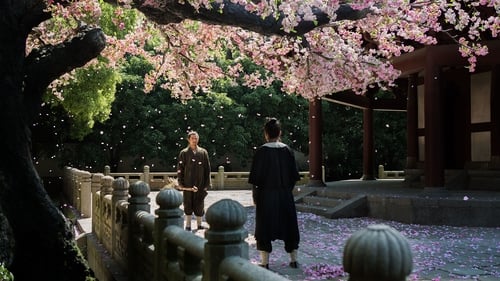
Story
Монах-сирота Хэ Анься покидает монастырь и отправляется на поиски пути домой. Творя добро и встречая разных людей, он совершенствует своё кун-фу.
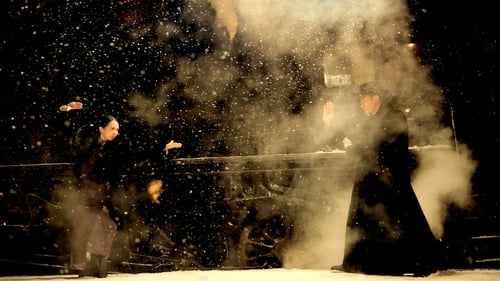
Screenplay
Основатель старейшей Школы боевых искусств намерен уйти на покой и передать дела достойному преемнику. Но самый лучший его ученик вынашивает куда более амбициозные планы - он намерен объединить все разрозненные школы в одну. С этой целью он вызывает на поединок лидера каждой школы и, одерживая победу раз за разом, объединяет все школы. Последней остается школа его умершего учителя, отстоять память которого на поединок выходит его дочь, тайно влюбленная в своего соперника

Writer
Династия Мин. Японские пираты уже давно изгнаны. Существуют четыре основные школы боевых искусств в городе Гуанчэнь. Любой, кто хочет основать свою школу боевых искусств, должен сразиться с этими четырьмя школами. Однако, когда дело доходит до претендента по имени Лян Хэньлу, его просьбу не только отклоняют, но также преследуют по всему городу. Единственная причина в том, что его оружие выглядит как японский меч, а для китайских мастеров боевых искусств не позволительно использование иностранного оружия. Чтобы изгнать Ляна, люди из этих четырех школ преследуют его как японского пирата. Цю Дунюэ когда-то был лучшим мастером боевых искусств в городе. Он оставил семью, чтобы жить в горах, но возвращается в город, услышав новость о нападении японских пиратов.

Director
Династия Мин. Японские пираты уже давно изгнаны. Существуют четыре основные школы боевых искусств в городе Гуанчэнь. Любой, кто хочет основать свою школу боевых искусств, должен сразиться с этими четырьмя школами. Однако, когда дело доходит до претендента по имени Лян Хэньлу, его просьбу не только отклоняют, но также преследуют по всему городу. Единственная причина в том, что его оружие выглядит как японский меч, а для китайских мастеров боевых искусств не позволительно использование иностранного оружия. Чтобы изгнать Ляна, люди из этих четырех школ преследуют его как японского пирата. Цю Дунюэ когда-то был лучшим мастером боевых искусств в городе. Он оставил семью, чтобы жить в горах, но возвращается в город, услышав новость о нападении японских пиратов.

"Mayi, the protagonist in this strikingly stylised debut ... works as a removals man for a company belonging to a relative. In his spare time, he drinks and plays cards with his colleagues. At a certain point he sees an opportunity to find his way into the immediate vicinity of the beautiful Hudie and his obsession won't stop when it becomes clear that she receives a lot of male visitors. His desires and ambitions put him on the path of minor white lies, with dramatic consequences." - IFFR

Screenplay
Another wuxia tale from Xu Haofeng, this one set against the backdrop of a rebellion during the Yuan Dynasty.

Director
Another wuxia tale from Xu Haofeng, this one set against the backdrop of a rebellion during the Yuan Dynasty.







